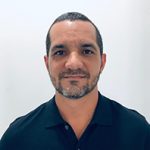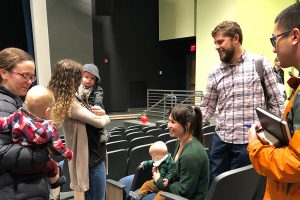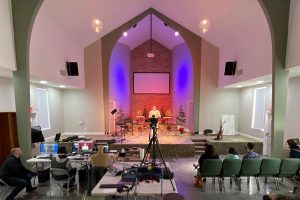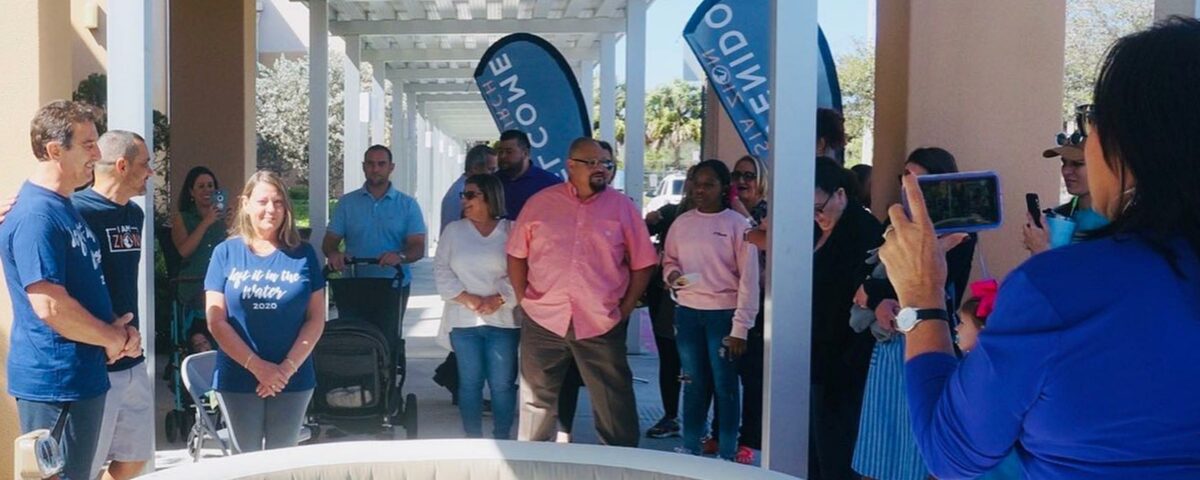The Brethren in Christ wouldn’t be the Church it is today without our long history of church planting. Over the course of our nearly 250 years, it has been an important avenue of growth and a legacy we continue to support.
To get an inside look, we talked with pastors Anler Morejon, Keith Miller, and Steve Airth who shared glimpses of what church plants look like at different stages of growth. We talked about what led them to church planting, the vision behind their churches, and how God is moving through their congregations.
Growing New Believers

Anler Morejon, pastor of Zion BIC
Zion BIC – Miramar, Florida
Anler Morejon grew up in a pastoral family but never imagined he’d be a lead pastor himself. For most of his adult life, he worked in bi-vocational ministry as a youth leader and audio-visual consultant for churches around Miami. But in 2017, he and his wife Isabel sensed a distinct call toward church planting.
After a year of seeking God’s will with his family, Zion BIC launched in January of 2019 in Miramar, Fla. The congregation began meeting in a hotel conference room before eventually finding a local elementary school to call home. By all measurements, it was a successful launch with approximately fifty people attending each week.
Zion’s mission statement, “saved by grace, transformed by love to serve with passion,” represents the journey of each Christian, said Anler. Whether they are new to the faith or have been a Christian their entire life, Zion seeks to walk alongside its members at every stage of their faith journey and help them grow to eventually disciple new believers themselves.
Zion celebrated its two-year anniversary in January 2021. As they look to the future, Anler is focused on strengthening his congregation’s commitment to God. “A lot of fear has been instilled in our members this past year,” he said, “And I want to make sure that we are standing on a solid base of God’s truth.”
Creating Community

Keith Miller, senior pastor of LifePath
LifePath Church – Newark, Delaware
Keith Miller was a youth leader when he and his wife Bethany sensed a call toward church planting. After years of prayer and discernment, they moved to Newark, Del. in 2011 to start LifePath, which held its first official service in September 2012. Since then, it’s grown to about 100 members.
From the beginning, Keith wanted LifePath to be a different kind of church, one based around community. “Our mission is to create communities of disciples that reconnect people to Jesus, to one another, and to God’s redemptive work in the world,” said Keith.
Keith doesn’t want people to view Church as something you have to do; instead, he wants LifePath’s members to realize that Church is something they are. Everything about LifePath is structured to create community, from dialog and response sessions after every Sunday service to accountability groups that meet for meals and coffee throughout the week. By using Zoom, they have been able to maintain that community throughout the pandemic.

LifePath Church holds Sunday services in a local school auditorium.
Keith is excited that LifePath has become established enough to reach beyond the walls of their congregation to local and global communities. About five years ago, they started creating small business loans for women in India to purchase sewing machines. In Newark, they’ve been able to support students and families who live under the poverty line.
Looking toward the future, Keith wants to continue redefining what Church is and can be. “Church is not a Sunday morning activity,” he said. “It’s a community of people who happen to meet on a Sunday.” He hopes that, as the LifePath community grows, they will continually reach out to their neighbors, their town, and the world.
Mentoring Disciples

Steve Airth, senior pastor for GracePoint
GracePoint Church – Ontario, California
Steve Airth first sensed a call to church planting while he was serving on the Pacific Conference’s board for Evangelism and Church Planting. After several years of prayer and discernment, he and his wife Nicole launched GracePoint in 2005. “My desire was to meet people where they were,” said Steve. He felt strongly that a church plant would enable them to connect with people who may normally be glossed over by society and the Church.
GracePoint is centered around discipleship and has a high level of accountability woven into their DNA. Over 75% of the congregation attends mid-week small groups that, pre-pandemic, would gather in people’s homes. Through these discipleship touchpoints, people come to see a life with Jesus as something that expands beyond Sunday morning and into their jobs, hobbies, and everyday life.

The GracePoint team livestreams a service from the church building they purchased in 2020.
From 2005 to 2020, GracePoint met in a local elementary school as it grew to an average of 90 people attending on a weekly basis. In September 2020, they purchase their own building and were excited to welcome the people through its doors … until the pandemic thwarted their plans. Currently, they use the church to live-stream their Sunday morning services.
As the congregation grows, Steve wants to continue the legacy of church planting. Once they have about 200 regular attendees, Steve hopes to send a small grouping to plant another church like GracePoint, one centered around community and discipleship. “The plan is to repeat that process as many times as possible to reach new parts of our community and see lives changed by Christ.
This article was originally published in the 2020 Annual Report.


